

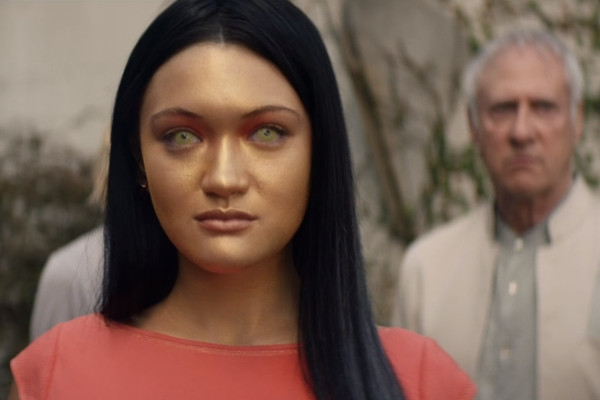
The core narrative linking all the various elements clumsily together is that the Romulans were aware of synthetic lifeforms out for destruction many centuries ago, and want to prevent the same thing from happening again. Kind of like a pre-emptive Terminator. Considering the androids that get discovered in this episode are a colony of just about 40 of them, it's a very flat, undramatic scenario.
Standouts in this episode include an android somehow being able to conduct a mind meld and Picard having a "if you can't beat 'em, join 'em" attitude to the swears ("Anyone who treats me like a dying man will run the risk of pissing me off.") The mind meld sequence is particularly notable, as, with its imagery and portentous voiceover, it does look incredibly like the introduction sequence for Lady Gaga's "Born This Way". Note that this pop video also contained an image of flowers floating above a world, not unlike the previously-referenced killer orchids.
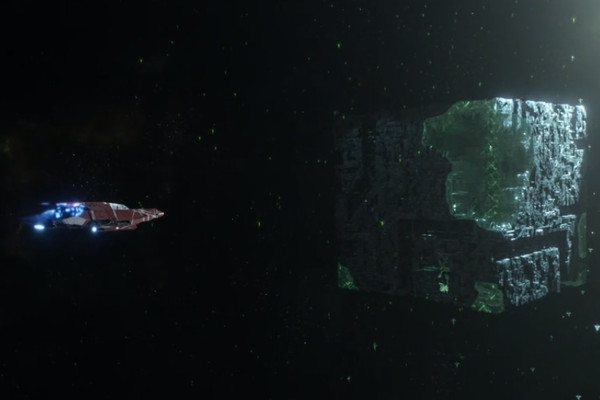
The Impossible Box ranks this highly simply because it at least sees the "plot", such as it is, finally start to kick in. There are some people out there, notably on the IMDb, that praise the less action-oriented episodes for showing us relationships and emotional interactions. And, indeed, such things would be praiseworthy if anyone in this series actually spoke like a real person. Instead, it's thinly-written dialogue for a bunch of poorly conceived stereotypes. And, in this programme, that sadly also includes Picard.
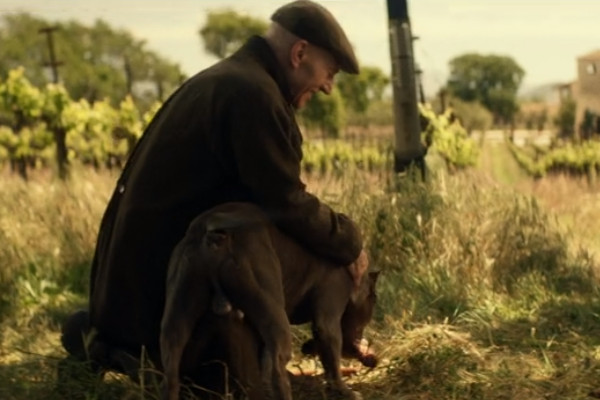
The first episode, where in just forty-four minutes expectation turns into underwhelmed disappointment. It's not just the slack plotting, like the Federation not investigating a terrorist attack right on their own front doorstep. It's not even the crass political parallels to modern-day politics, or the somewhat tasteless decision to explicitly compare a fictional event with an alien race to Dunkirk.
No, what really troubles right from the start is the realisation that this isn't the programme that it could, or should, be. Bringing back the Next Generation universe into a dumb shoot-'em-up where villains are played so arch they might as well have a sign saying "I'm the baddie" above them is one thing. But to place a septuagenarian with diplomatic experience into this world seems misconceived on so many different levels.
It's not that the show should have come back as The Golden Girls in space. But the demographic for this series would be presumably older than that of a regular SF show, and so expect something naturally more reflective. Early posters went up with Picard and his dog gazing into the sunset, but the actual series itself is far removed from this ideal.
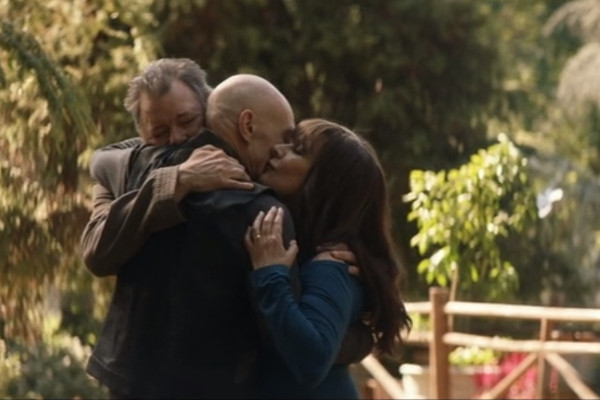
One issue with modern television is the curious need for "meta" dialogue, as if programme makers can't embrace the fictionality of their creations, but instead must constantly remind viewers that, yes, they know it's all quite silly too. Having Alison Pill talking about wanting to be "the fun crew member" who asks dumb questions is the kind of deconstruction that leaves nothing in its path. This is also the episode where Hugh Borg (played by the original actor from The Next Generation, Jonathan Del Arco) is senselessly killed, which seems something of a downer when they went to the trouble to bring him back.
Yet the key selling point of the episode is the return of Riker and Troi, as the programme tries to replace plots with nostalgia. While characters from The Next Generation showing up in the series wasn't exactly unexpected - even leaked - it's a real shame that the series is forced to rely on them to prop itself up. The TNG crew weren't always the most dynamic, but even Troi and Riker show the huge gulf between them and the new batch of two-dimensional "bad asses" that Picard has aligned himself with.
The knowledge that the couple didn't exactly get their happy ending but instead had a son that died could have been potentially worth exploring, but in a universe as hostile as this, it feels maudlin and more than a little depressing. Though the strangest element of the episode is Riker's observation of "I'd recognise that head tilt anywhere"... a reaction to Soji tilting her head like Data, but in a way she's never done in any previous episode.
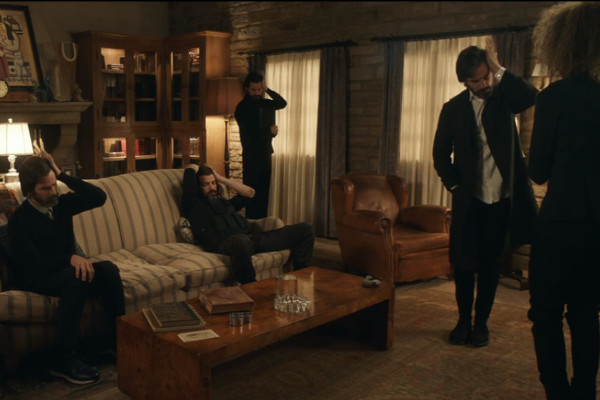
A revelatory episode, whereby viewers are finally given the full backstory of both the plot and the characters. This attempt to add dimensionality to the lacklustre new crew is something of a misstep, as not only does it mean we've had to spend 7 episodes believing them to be quite shallow characterisations, when the extra "edges" are added, they're still very dull.
Santiago Cabrera gets to have a bit of fun with five holograms based on his main character, all with varying different personalities and shaky accents. It's just a shame they're all more interesting than the main character he plays. Patrick Stewart cited the excellent movie Logan as one of the things that persuaded him to also revisit an older Picard. While his senile, foul-mouthed version of Professor Xavier was a highlight, it doesn't seem right for Picard to follow suit, a bit like Mother Theresa calling everyone a c***. While he doesn't actually swear in this episode, we do get the return of Admiral Clancy, who helpfully tells him to "shut the fuck up".
Characters come and go not because they naturally would, but because the plot demands it - which gives us the return of Jeri Ryan, reactivating Borgs which then just get blown out of an airlock. It's this repeating cycle of "character makes unlikely appearance, does something, that action has no consequence anyway so might as well not have happened" that makes Picard something of a chore to sit through. The contrived, hugely unlikely plot mechanics dictate the whereabouts of every character, personal motivation forced through hoops in order to adhere to the narrative.
And this is one of the best episodes.